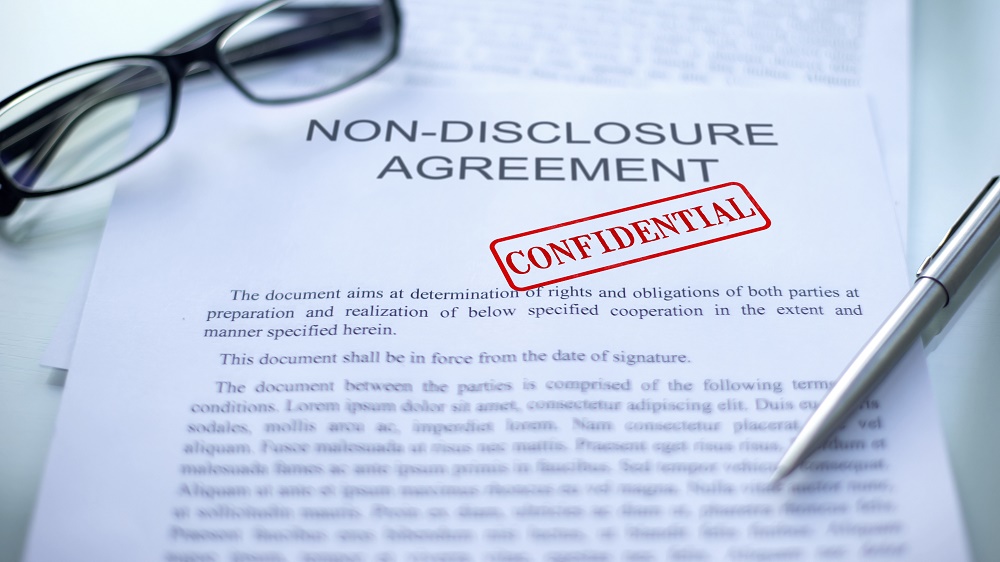NDAs or non-disclosure agreements are standard legal documents, but unless you meticulously include vital clauses and conditions, they may not provide the security and peace of mind you require to protect your sensitive data and information. Understanding the essential elements of a robust non-disclosure agreement ensures business activities can proceed safely, with confidential information shielded from unintended disclosure or misuse.
Here, we will outline the critical components that should be part of every non-disclosure agreement. Whether you’re a startup, a seasoned enterprise, or an individual working with proprietary information, these pointers will guide you to ensure your interests are well-defended.
The Basics: Non-Disclosure Agreements
At their core, non-disclosure agreements (NDAs) are legal contracts safeguarding confidential information. They come into play in various scenarios, such as a budding partnership, investment discussions, or even employee onboarding. NDAs create a legally enforceable boundary around your trade secrets and sensitive business details.
With that boundary in mind, these agreements are clearly beneficial to both parties involved. The information owner, whether an individual or a company, is assured that their secrets will not be accidentally or purposefully disclosed to the public or competitors. On the other hand, the recipient of such confidential data can rest easy knowing they have access to proprietary knowledge without fear of legal repercussions.
NDAs are one way to protect your business from legal risks. Read about others in this article: 5 Key Business Decisions that Can Help You Avoid Legal Trouble.
Elements of an NDA
There are specific elements that an NDA must include to be effective. These elements ensure the agreement is comprehensive and covers all pertinent aspects of confidentiality protection.
Confidential Information
The first crucial element of an NDA is outlining precisely what constitutes confidential information.
This can include:
- Trade secrets
- Business plans
- Client lists
- Proprietary information
Clarity in this section prevents ambiguity and reduces the risk of unintended breaches.
Parties to the Agreement
Identifying each party involved accurately is crucial. The omission of a legally recognized name or misidentification can void the agreement. It’s not just about names; it must also clearly define roles and responsibilities.
Duration of Confidentiality
The duration of the NDA is pivotal. It answers “how long?” which is indispensable for practical enforcement. Your NDA must specify a realistic and clear timeframe—a stretch too short might be futile, and one overly extended may not hold up in court.
Obligations and Restrictions
The heart of any non-disclosure agreement is the obligations it imposes, particularly on the party receiving sensitive information. As such, the document must be explicit about maintaining confidentiality and unequivocal in forbidding using the information for any personal endeavor or gain.
Termination Clauses
A forward-thinking NDA includes stipulations for its conclusion—under what conditions it can cease and what happens to the confidential material post-termination. The exit strategy can be as significant as the protective measures, so don’t overlook the importance of including termination clauses.
Resolution of Disputes
Disagreements can arise, and your NDA should premeditate their resolution. A section dedicated to dispute resolution and choice of state law ensures you have foresight over legal proceedings should they become inevitable.
Another important legal document for many business owners is a founder’s agreement. Learn about it in this article.
Consult with Business Lawyers
NDAs are not a one-size-fits-all solution. Customization to your specific needs is non-negotiable and necessitates professional assistance. Consulting with legal agreement experts, such as the Denver-based business lawyers from Contiguglia Law Firm, can optimize the defense of your intellectual property.
Read this article next: Acquiring and Protecting Intellectual Property Rights.
Frequently Asked Questions
Finally, here are some FAQs on the subject to clarify common uncertainties surrounding NDAs.
What is the purpose of a non-disclosure agreement?
To safeguard sensitive business information, strict security measures must be implemented to prevent it from becoming public or falling into the hands of competitors. This involves controlling access to the information, using encryption, and regularly updating security protocols to address new threats.
Are NDAs legally binding?
Yes, non-disclosure agreements are legal contracts that are fully enforceable by law. They are designed to create a confidential relationship between the parties and protect any type of confidential, proprietary, or trade secret information.
What happens if you break an NDA?
Violating an NDA can lead to serious legal consequences. These may include penalties such as financial compensation, where the breaching party may be required to pay for the losses incurred by the other party due to the breach.
How serious is a non-disclosure agreement?
NDAs are taken very seriously—a breach can damage both financial standing and reputation.
Who benefits from a non-disclosure agreement?
Both parties stand to benefit as mutual trust is established by preventing leakages of confidential information.
How long do NDAs last?
The duration of confidentiality agreements can vary significantly, generally extending as long as the information in question retains its confidential status. This period is determined by the specifics of the agreement, considering the nature of the information and the context in which it is shared.
Can you disclose that you signed an NDA?
Generally yes, unless the NDA contains explicitly a clause prohibiting such disclosure.
Legal Help with NDAs in Denver
Securing business secrets goes beyond mere paperwork. It involves a carefully crafted non-disclosure agreement featuring these imperatives. Remember, constructing an NDA with precision and depth is paramount. Contiguglia Law Firm is dedicated to providing comprehensive legal solutions in Denver.
Contact us to book a 30-minute consultation where we can discuss crafting NDAs that safeguard your business interests effectively.
Did you learn a lot about non-disclosure agreements in this article?
Here are three more to read next:



